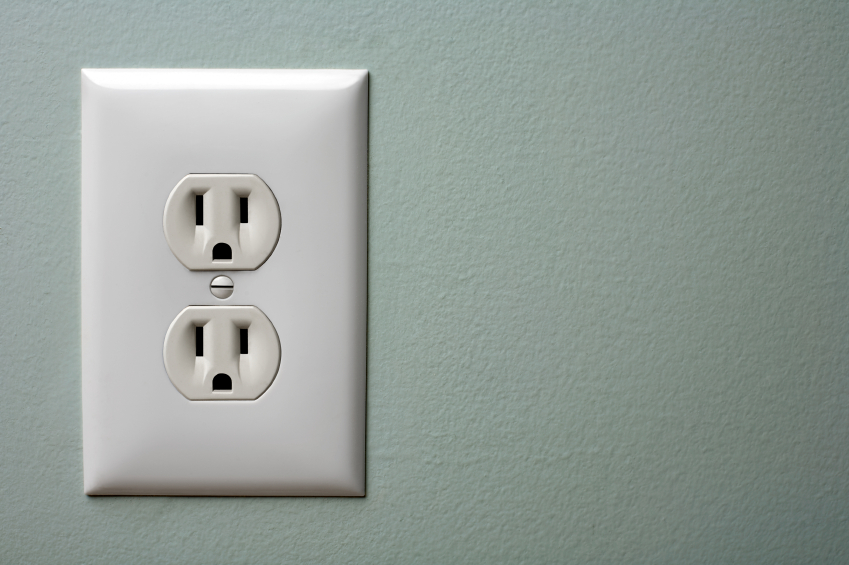Worn-out or faulty outlets are one of the most common causes for electrical fires and electrocutions at home. Inspecting all the electrical outlets regularly for damage or deterioration, updating them, and using them safely will all minimize your risks of a house fire or other accidents.
Electrical Safety Tips at Home
Most home fires are preventable if electrical systems are well maintained and updated when needed. Worn-out or faulty outlets are at fault too often. If you inspect all the outlets regularly for damage or deterioration and then repair them, you reduce your risks of a house fire and other accidents.
Inspect your Electrical Outlets
To avoid electrical fires and electric shocks it pays to periodically do a check of all the electrical outlets. Make sure that the covers are all intact and don’t have any exposed wires or gaps between the electrical outlet and the surrounding wall. Cracks or holes in electrical outlets should be replaced or repaired.
It is much better to employ a profession to repair or replace electrical systems in a home or commercial building. Licensed electricians are trained to safely fix problems and will make sure that your electrical system stays up to code. Even if you have the expertise to do simple repairs and replacements of electrical outlets, be sure to follow all the proper safety measures.
Updated Outlets
Many older homes have two-pronged outlets with outdated wiring. If you notice that, you should ask a trusted electrician for an assessment of your home’s wiring. Consider updating the wiring and installing new grounded outlets. Two-pronged electrical outlets should be replaced by three-pronged grounded outlets that can be used with three pronged electrical appliances.
You will also want to check that any two-pronged outlets are fitted with a grounding wire in the receptacle. If this wire isn’t present, do not install the three-pronged outlets because they won’t be grounded. You will need to add grounding wires before you change out the outlets.
Another option for updating electrical outlets is to install Ground Fault Circuit Interrupter (GCFI) outlets. This safety features provides protection against accidental electrocutions. The GCFI will detect ground faults and interrupt the flow of electricity in order to prevent electrical discharges and fires.
Damaged and Incorrectly Installed Outlets
A major cause of electrical accidents in household is the presence of outlets that are not properly installed or maintained. Do regular inspections of all your electrical outlets, especially those in high-use areas such as the kitchen and bathroom. All electrical appliances, especially those in the kitchen and bathroom, should be installed at a height that keeps them away from water.
Electrical outlet covers should encase all wiring and be well fastened. Be sure to replace cracked covers immediately. If the outlet receptacle does chip or break, remove and switch it out. Double check loose plugs to ensure they do not have wear because they can pose significant potential safety risks.
Safe Use of Plugs
When inserting or detaching the plug and cord of an appliance into an electrical outlet be sure to hold the base of the plug securely. Don’t just pull the cord when you want to unplug it from the outlet because that may cause damage. Tugging cords from a distance and at an angle can break wires and plugs can be bent, but the outlet can also be harmed.
Even with an electrical system that complies with all safety standards, it is most important to never touch electrical outlets with wet hands. Water is a conductor and increases the likelihood for electrocution. Electricity and moisture don’t mix.
Electrical Outlets and Children
Every year, many preschoolers are injured when they innocently insert inappropriate objects into power outlets. Homeowners with children should cover unused electrical outlets with child-safe plastic safety plugs or other products designed to help protect babies from accidents.
Outdoor Outlets
All of the electrical outlet safety tips discussed here also apply to outlets outside. All two-pronged outdoor electrical outlets should be replaced with GFCI-approved grounded receptacles. A circuit tester found in local hardware store will determine whether each of the outlets are grounded. Ungrounded outlets will need to have the wiring replaced. It is especially important for outdoor power outlets to be grounded because weather exposure can increase the risks when appliances are plugged in.
Homeowners can reduce the likelihood of accidents and fires by periodically checking and then fixing any defects in electrical outlets but when necessary repairs are not simple, it pays to use a professional service provider. American Home Shield will refer you to a trustworthy electrician and help you keep your maintenance costs down. We have a service warranty plan that will provide you with the protection you need to make your home a safe, comfortable place to live.




